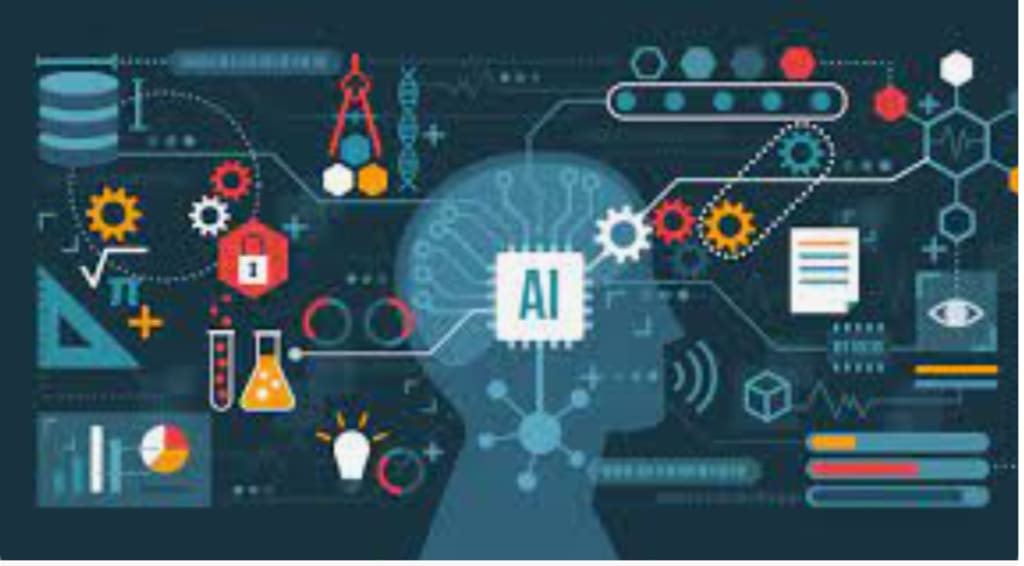The Basics of Artificial Intelligence: An Introduction
What is Artificial Intelligence?

Welcome to the dawn of the Artificial Intelligence (AI) era, where machines have started to exhibit cognitive functions similar to the human mind, including learning, reasoning, problem-solving, and language processing. The realm of AI is vast, complex, yet fascinating, so fasten your seatbelts as we embark on a journey to unravel the intriguing world of Artificial Intelligence.
What is Artificial Intelligence?
Artificial Intelligence is a branch of computer science that aims to create machines that mimic human intelligence. In simpler terms, it's about developing algorithms that allow computers or robots to react and respond to situations in the way a human would.
AI has come a long way since its inception. While the concept of artificial intelligence dates back to ancient history, the modern field of AI was officially born in 1956 at a conference at Dartmouth College. Over the years, it has grown from a mere academic concept to an essential part of the technology industry, influencing various aspects of our lives from entertainment and healthcare to finance and transportation.
Two Types of Artificial Intelligence
Broadly, AI can be categorized into two types: Narrow AI and General AI.
Narrow AI, also known as Weak AI, is designed to perform a narrow task, such as voice recognition. Siri, Google Assistant, and Amazon's Alexa are excellent examples of narrow AI. These systems can interpret and respond to voice commands, but they don't understand the underlying meaning or context. They're intelligent, but within a very limited domain.
On the other hand, General AI, also referred to as Strong AI, possesses the ability to understand, learn, adapt, and implement knowledge across a broad range of tasks. It's the kind of AI you see in sci-fi movies—machines that have consciousness and emotions, and are capable of outperforming humans in most economically valuable work. However, this level of AI remains largely in the realm of science fiction.
Core Subfields of AI
AI has several subfields, but Machine Learning (ML) and Deep Learning (DL) are the two most prominent ones.
Machine Learning is a subset of AI that uses statistical methods to enable machines to improve with experience. Essentially, ML algorithms learn from data. The more data you feed them, the better they get.
Deep Learning, a subset of ML, takes inspiration from the human brain's structure and function to create artificial neural networks. These networks can learn and make intelligent decisions on their own. Deep Learning is the technology behind driverless cars, enabling them to recognize a stop sign and distinguish a pedestrian from a lamppost.
The Impact of AI: Present and Future
AI has infiltrated almost every industry and facet of life. From recommending songs on Spotify to detecting fraudulent transactions, AI systems are improving efficiency, accuracy, and user experiences. In healthcare, AI is assisting in diagnosing diseases, while in education, it's personalizing learning experiences.
Looking ahead, the future of AI holds immense promise. As we refine AI techniques and capabilities, we can expect AI to help us solve complex problems related to climate change, disease outbreaks, and more. However, it also presents challenges such as job displacement due to automation and privacy concerns that we must address.
Wrapping Up
The journey of exploring AI is like walking through a labyrinth of wonders. It's a field that's transforming our world, revolutionizing the way we live, work, and interact. Understanding AI, its applications, and implications, is crucial as we navigate the 21st century. Let this introduction serve as your first stepping stone into the captivating world of AI, as there is so much more to discover and learn. So, stay curious and keep exploring because the AI adventure has only just begun!
To dive deeper into the world of AI, keep an eye out for our upcoming articles. We'll be exploring everything from the intricacies of Machine Learning to the ethical considerations of AI. Remember, as the great Stephen Hawking once said, "Intelligence is the ability to adapt to change." And in our rapidly evolving digital world, AI is one of the most significant changes we must understand and embrace.
About the Creator
Geoffrey Muriuki
Geoff is a tech enthusiast with interest in the transformative powers of Artificial Intelligence and blockchain. He strives to demystify the world of AI and blockchain. He believes in the potential of technology to shape a better future.





Comments
There are no comments for this story
Be the first to respond and start the conversation.